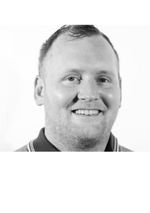Equitas Spotlights - meet Lauren O'Mahoney Counselling
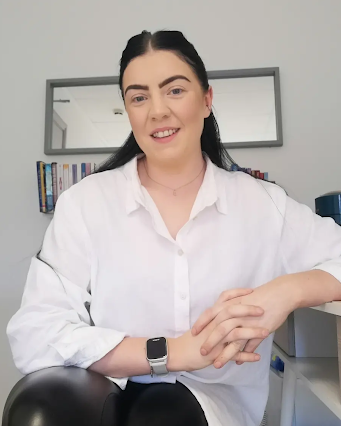
This is the beginning of our "Equitas Spotlights" series where we shine a light on some incredible brands, businesses and founders from across the equine industry all over the world. I've been wanting to launch this spotlight series for a quite a while so I am delighted that the day has finally come.
For our first piece in this series, after Monday's launch of the #StressAffectsUsAll Campaign, we felt it fitting for the first business and owner to be Lauren O'Mahoney Counselling.
Lauren was part of the team of specialists that gave us advice and guidance for the publication of the Equestrian Mental Health Booklet which was very well received. We've had some great chats and she is building an incredibly supportive brand with some great advice and
So lets kick off our #EquitasSpotlights Series and get to know a little more about Lauren and Lauren O'Mahoney Counselling.
Who are you and what do you do? Tell us a little bit about yourself Lauren and your role.
Hello everyone! My name is Lauren O Mahoney, and I am working as a counsellor in Clonmel, Tipperary. I hold a BA (Hons) Degree in Counselling and Psychotherapy from The Irish College of Humanities and Applied Sciences. I have opened my own private practice since then and will be celebrating 1 year in business this coming May. I am currently completing my MSc in Perinatal Mental Health from the University of Limerick, which I have just announced as a new service within my practice.
Tell us about your journey to get here and why this became your area of focus. Why was this important to you?
For me, becoming a counsellor was never something I thought of doing growing up. I spent most of my working years within the hospitality industry, eventually working my way up to a Duty Manager. I remember always loving being part of such a big team but in terms of job satisfaction the hospitality industry never hit the mark. When I turned 24 my past had caught up to me and I had completely changed as a person, and not for the better! I unfortunately lost my dad to cancer in 2013, when I was 19 years old. This shattered me and my whole family and I spent 5 years pretending like I was ok, numbing and bottling every difficult emotion that came my way. I was battling an enormous amount of depression until I eventually hit rock bottom and I too had to pick up the phone and ask for help. It was one of the most anxiety provoking situations I had ever been in, but the single most important thing I could have done to change the course of my life.
What inspired you to become a counsellor, and how has that inspiration guided you in setting up Lauren O Mahoney Counselling?
As I mentioned above, becoming a counsellor was never something I thought of doing. However, when I started to engage in therapy myself my whole perspective changed. After just a few weeks of therapy I started to leave each session feeling incredible but always wanting more. 1 Hour per session never felt enough for me. Through many discussions with my therapist, I made the decision to return to college and train as a counsellor myself.
I think what inspired me to reach this point is my dad. Although he is not here, I still have this deep feeling of wanting to make him proud. This really pushes me to challenge myself professionally. I also became my own inspiration too. It may sound strange but when you have hit rock bottom you become extremely grateful for everything you achieve thereafter that you never want to stop pushing yourself. I think you become acutely aware of how things could have ended up.
Can you walk us through the moment you decided to start your own business? What was the catalyst for this significant step?
I can’t recall a distinct moment where I decided to start my own business, but there was a gradual feeling as I began my final year in college that I knew I was ready to take that step. I do believe being a mature student and spending 4 years in college working weekends in a minimum wage job pushed me in that direction. I had to sacrifice a lot to obtain my degree. I attended a private college, meaning I was not eligible for government funding, so for all 4 years I paid myself. This meant I had to sit out on a lot of trips away with friends or at hen parties and weddings. Ironically, I remember always telling people that for those 4 years, I had my blinkers on, just as a horse would, I would say it helps me avoid looking at what everyone else is doing so I can focus on my goals and my future.
What were the first steps you took in making the transition from idea to reality in establishing your counselling practice?
There are two people that jump to mind here: my supervisor, Michelle Walsh, and Catherine Ryan at Ryan Marketing Solutions. I mentioned to my supervisor about going out on my own, and she thankfully knew of a room that had come available. She then recommended Catherine, who advised me on tasks such as registering the business, working hours, and social media. These two women were key to making Lauren O'Mahoney Counselling a reality.
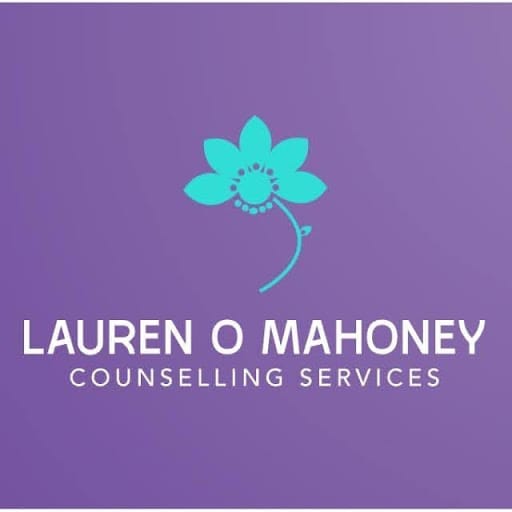
How do you define the mission and values of your counselling practice, and how do they reflect your personal beliefs?
I think over the years I developed a mission statement for my current practice without even realising it. When people would ask me why counselling, I would always say that I know exactly how tough life can be, but I also know exactly how amazing it can be. Right there is my mission: I want to help people realise that even in our darkest moments, we still have the capacity to change the course of our lives. I feel very grateful to all who have supported me in managing my own mental health, and it has instilled a deep longing in me to give that back to others. This is the main reason I chose to become a counsellor, so I can do for others what was done for me. The philosophy of my practice is rooted in Existentialism, and for anyone who doesn’t know what Existentialism is, it’s a theory or approach in psychotherapy that emphasizes the existence of the individual person as a free and responsible agent determining their own development. I think if we can give our lives purpose and meaning again, we can begin to enjoy what life has to offer.
Who do you consider your ideal client, and how do you tailor your services to meet their unique needs?
I think my ideal client would be willing to make the necessary changes to improve their mental health and overall well-being. If you are willing to change and you understand that no one else can do this for you, then you sound like my ideal client. Often, you will find people who arrive at therapy who have not yet reached the action stage of change, which is perfectly fine. However, in this case, I will begin by planting a little seed of motivation. This process looks very different for everyone, and this is where you, as a therapist, must remain fluid in your approach. No client is the same, and what works for one may not work for all. Every single person that walks in your door will present with different needs, and you, as a therapist, must establish these needs so you can offer the most appropriate support to this individual.
What role does empathy play in your work, and how do you balance professional boundaries with compassionate care?
Empathy is the ability to emotionally understand what other people are feeling and allows you to see things from their point of view. As a counsellor it is central to our work and enables us to respectfully perceive what the client is bringing from their frame of reference and to communicate it back in a way the client feels understood. I think this process is what builds the incredible relationships we have with our clients. However, to answer your second question, empathy, and compassionate care, if not managed correctly by the counselor, can lead to professional boundaries being broken, burnout, compassion fatigue, and vicarious trauma of varying degrees. To balance professional boundaries and compassionate care, I remind myself constantly that I am providing a service at the end of the day, and I owe it to my clients and myself to ensure I provide a well-run service.
Have you any daily or weekly habits that help you stay focused?
Absolutely! I would encourage everyone to build healthy habits to promote positive mental health. I found the best way for me to improve my mental health for high levels of focus was through behaviour activation. This means deliberately practicing certain behaviours to ‘activate’ a positive emotional state. Some daily examples are as simple as making my bed every morning, drinking plenty of water, fuelling my body with nourishing food, keeping my home or workspace tidy, and completing tasks I had set out to do. On a weekly basis, I try to get to the gym 3–4 times a week, meet friends for a coffee and walk, pick up a book or journal, and get outdoors as much as possible. Trying to stay focused at work is extremely hard if you are not looking after yourself. This does not just apply to the counselling industry but to everyone, and I think the best way is to start with the basics. I have two books that I would recommend reading in relation to this question.
James Clear – Atomic Habits
This book is fantastic for developing achievable and sustainable habits, with a framework to follow which is backed up by research.
Catherine Gray – The Unexpected Joy of The Ordinary
This book is key in remembering the ordinary day to day things can help you achieve happiness.
How do you balance managing all the information you are given in appointments… the feelings and emotions you’ve to handle and not leave it affect your mental health.
I find keeping a minimum of 30 minutes between every appointment beneficial when trying to manage the information and emotions that come from each client. I have in the past had back-to-back appointments, and I quickly learned that this was not good for my own emotional health. I like to leave time following each session to write up my notes. This helps me let go of the information they have given me and open space in my mind for my next client. I will also try to remove myself from the therapy room, even for a few seconds, or open a window to let air into the room. This is again a way for me to decompress from anything difficult that may have come forward during the session. If I feel at this time that something is staying with me, I will either reflect on it using my journal or I can bring it to supervision. Having an excellent self-care or emotional safety plan outside of work is essential for having enough emotional and physical energy to work in this industry. When working in a caring profession, it is crucial that you care for yourself first. The previous question gives a basic overview of what self-care looks like to me.
What's a common misconception about counselling that you encounter? Do you believe the stigma around counselling is changing in Ireland?
A common misconception I encounter a lot is this idea that to attend counselling, you need to be experiencing a crisis in your life or have a diagnosed mental health condition. This is very wrong. Counselling can be an incredible form of personal development, helping you gain motivation, resilience, confidence, and fulfilling relationships. You might feel as though you don’t ‘need’ counselling because you haven’t suffered a life-altering experience, yet you still can’t explain why you’re unhappy with your life and who you’ve become. I would encourage everyone to attend counseling sessions. I would love it if booking an appointment with your counselor became as routine and casual as an appointment with your doctor, dentist, or physiotherapist.
Another misconception I come across is that people think counselling only focuses on the negative aspects of the individual’s life, when in fact it is so much more than that. I have received endless amounts of validation and reassurance from my own counsellor, and I have had some of the best belly laughs during my sessions. Counselling can be enjoyable and educational, and we don’t sit back behind a pen and piece of paper and allow only you to do the talking. We will become devoted to your progress and want you to upskill as a human being, so be sure of it. At some point, I’ll be pulling out the flip chart to draw many psychological concepts!
Personally, I do think the stigma is changing. Everywhere I go, mental health is a common topic. It is prominent on social media, within the workplace, in sports, schools, and so much more. Yes, like anything else, there is always room for improvement, but I’m definitely seeing a shift in the right direction.
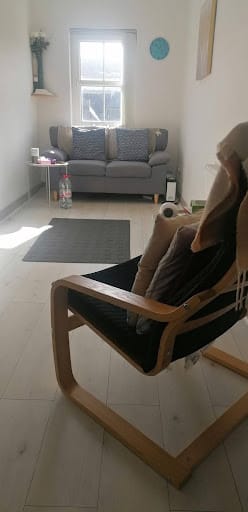
What message do you want to convey to those considering seeking counselling for the first time?
I want people to know that the idea of attending your first counselling appointment is more than likely going to feel a lot worse than the real thing. We tend to let anxiety or low mood paralyze us, so we don’t look for help, or we leave things so bad that we are left with no choice but to talk to a professional, so please don’t let this happen to you. We are here to help, so don’t let fear hold you back from making contact. You can always send a message or an email if you’re not ready to make a phone call.
What plans do you have for the months and year ahead? Any goals or aspirations?
My biggest goal is to finish out my Msc in Perinatal Mental Health, where I am studying at the University of Limerick. As I continue to gain specialised training in this area, I want to develop an established perinatal service here in Clonmel. I also have a couple of projects coming up within my community, so keep an eye on my social media for when those go ahead.
You recently participated in the Equitas Equestrian Mental Health Booklet for the HAY Campaign. Why was it important to play your role and use your voice?
Not only did I want my counselling business to be involved in such a proactive and forward-thinking campaign, but I grew up with my older sister, who spent her whole life enjoying time with her horse. I remember, as a child, going down to the yard with her every single weekend and riding out a few horses myself. Although I didn’t continue as I reached my teens, my sister did! She now works for Coolmore Stud in Cork, where she cares for the mares and foals. I have watched her work six days a week in hot, cold, rainy, snowy, dark, and sunny weather. I have watched her work every Christmas day for the past 10 years, and most memorable was the pain she suffered when a foal of theirs that she cared for and loved dearly passed away. She was heartbroken. This campaign was a way for me to use my knowledge about mental health to hopefully help those like my sister, who spend every second of their day caring for something outside of themselves. I think anyone in the equestrian industry is incredibly selfless, and I couldn’t pass on an opportunity to give back to them.
Any other information that you feel relevant to highlight the work that you do?
I would like to take this opportunity to discuss the perinatal mental health work I am currently doing. I have introduced this service into my practice recently and am now working with those who are struggling with their mental health during this period. I would like to highlight that I will be expanding the definition of perinatal to increase inclusivity. This service will now be open to all genders who may be suffering with their mental health before the time of conception and up to 5 years post birth. This client may be experiencing infertility, IVF cycles, miscarriages, a planned pregnancy termination, child bereavement and loss, difficulties adjusting to parenthood, pre- and post-natal depression, anxiety, and OCD. The service will not be limited to these examples, so people are encouraged to get in contact for more information.
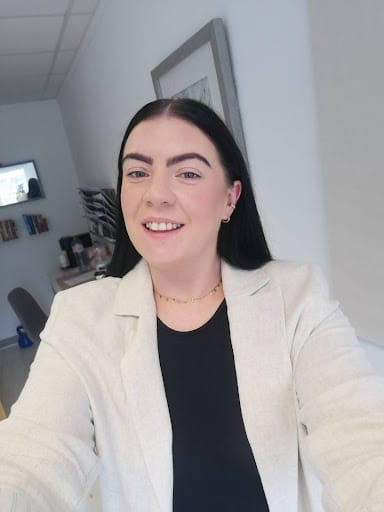
Finally, where can people follow, engage, or learn more about Lauren O'Mahoney Counselling?
I am mainly active on Facebook and Instagram where you can follow me at Lauren O Mahoney Counselling. You can also contact me by phone on 0851645905 or by email on laurencounsellingservices@mail.com.
Ends.
Folks, Lauren O'Mahoney... what a story and journey she is on. Love some the answers here and the insight into the back story of how Lauren O'Mahoney Counselling came about. Such a clear sense of purpose.
This has been a wonderful way to kick off a series where we shine a spotlight on some amazing brands, businesses and founders. Change-makers, advocates, leaders, disruptors, innovators.
We want to engage those brands and leaders focused on Empowering Change, Together. Focused on pushing the industry or its people forward.
Until Next Time,
Shane


